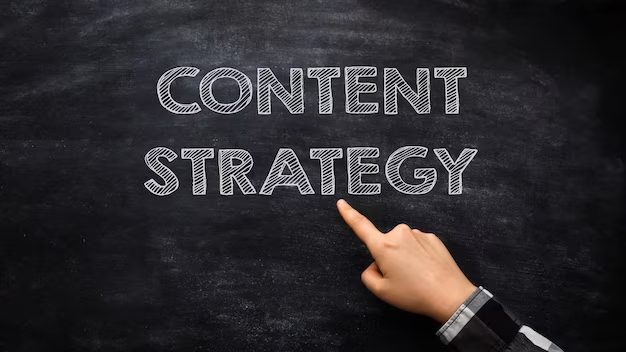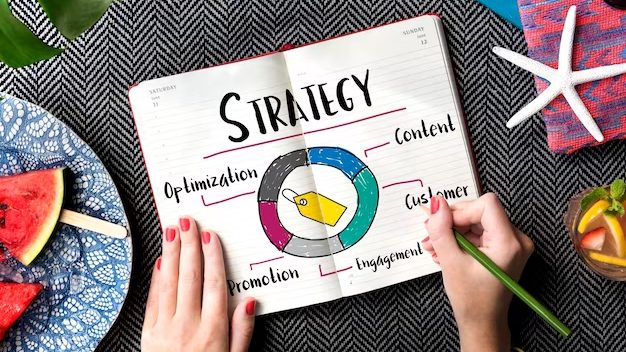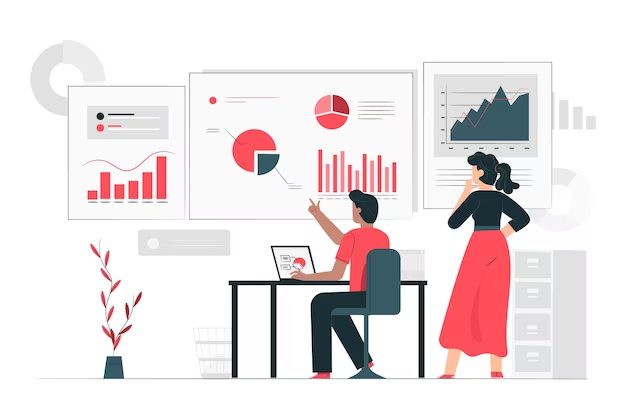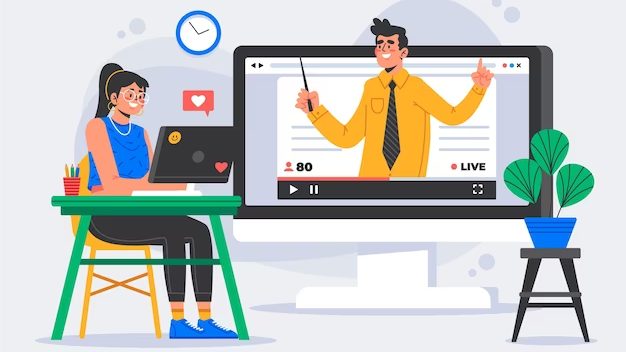Have you ever wondered how some websites manage to attract and retain thousands of visitors every month? How do they create content that is relevant, engaging, and persuasive? How do they optimize their content for search engines and social media platforms? The answer is simple: they have content strategists.
Content strategists are professionals who plan, create, and manage content for websites and other digital channels. They help businesses achieve their goals by aligning their content with their target audience’s needs, preferences, and behaviors.
Content strategists are not just writers or editors; they are also marketers, researchers, analysts, and project managers. They have a wide range of skills and responsibilities that make them valuable assets for any online business.
In this article, we will explain what content strategists do, what skills they need, and how they can help you grow your online presence and revenue. We will also show you how to find and hire the best content strategists for your needs. Let’s get started!
What Does a Content Strategist Do?

A content strategist is responsible for developing and executing a content strategy for a website or a digital channel. A strategy is a plan that defines the purpose, goals, audience, tone, style, format, distribution, and measurement of content. It also outlines the content creation, editing, publishing, and maintenance processes and workflows.
A content strategist’s main tasks include:
- Conducting content audits and gap analyses to evaluate the current state and performance of existing content
- Performing keyword research and competitor analysis to identify content opportunities and best practices
- Creating content personas and user journeys to understand the audience’s needs, pain points, and motivations
- Developing content guidelines and editorial calendars to ensure consistency, quality, and relevance of content
- Writing, editing, and optimizing content for web, mobile, email, social media, and other platforms
- Collaborating with designers, developers, marketers, and other stakeholders to ensure content alignment and integration
- Testing and measuring content effectiveness and impact using analytics tools and feedback mechanisms
- Reporting and presenting content results and recommendations to clients and management
- Managing content projects and teams, ensuring timely delivery and adherence to budget and scope
What Skills Do You Need to Become a Content Strategist?
A content strategist needs a combination of hard and soft skills to succeed in their role. Some of the most important skills are:
Writing and editing skills
A content strategist needs to be able to produce clear, concise, and compelling content that engages and persuades the audience. They also need to be able to edit and proofread content for grammar, spelling, punctuation, and style.
Marketing and SEO skills
A content strategist needs to be able to apply marketing principles and techniques to content creation and distribution. They also need to be familiar with SEO best practices and tools, such as keyword research, on-page optimization, link building, and content marketing.
Research and analysis skills
A content strategist needs to be able to conduct thorough and accurate research on topics, keywords, competitors, and audience. They also need to be able to analyze data and metrics to evaluate content performance and identify areas for improvement.
Communication and collaboration skills
A content strategist needs to be able to communicate effectively with clients, management, and team members. They also need to be able to collaborate with other content specialists and professionals, such as designers, developers, marketers, and copywriters.
Project Management and Organizational Skills
A content strategist needs to be able to plan, execute, and manage content projects and teams. They also need to be able to organize and prioritize tasks, meet deadlines, and work within budget and scope.
Furthermore, effective project management involves clear communication with team members, stakeholders, and clients. Moreover, a content strategist must establish a transparent workflow, providing regular updates and addressing any challenges promptly.
Proficient organizational skills not only aid in managing the content creation process but also contribute to fostering a collaborative environment, where ideas flow seamlessly, and the team can collectively navigate the complexities of content strategy with efficiency and precision.
How Can Content Strategists Help You Grow Your Online Presence and Revenue?

Content strategists can help you grow your online presence and revenue by creating and managing content that:
- Attracts more visitors to your website or digital channel by improving your visibility and ranking on search engines and social media platforms
- Engages and retains your visitors by providing them with valuable, relevant, and interesting content that meets their needs and expectations
- Converts your visitors into leads and customers by persuading them to take action, such as subscribing, signing up, buying, or contacting you
- Builds trust and loyalty with your leads and customers by delivering consistent, high-quality, and personalized content that solves their problems and satisfies their desires
- Increases your brand awareness and reputation by establishing your authority, credibility, and uniqueness in your industry and niche
How to Create a Content Strategy for Your Website or Digital Channel?
Creating a content strategy for your website or digital channel is not a one-time task. It is an ongoing process that requires constant monitoring, evaluation, and adjustment. However, you can follow some basic steps to start and implement your content strategy. Here are the steps:
Define your content goals and objectives
What do you want to achieve with your content? What are the specific and measurable outcomes that you expect from your content? How do they align with your overall business goals and objectives?
Identify your target audience and segments
Who are you creating content for? What are their demographics, psychographics, and behaviors? How do they use and consume content? What are their needs, pain points, and motivations?
Conduct a content audit and gap analysis
What content do you already have on your website or digital channel? How does it perform and compare to your goals and objectives? What content is missing or outdated? What content needs to be improved or removed?
Create a content plan and editorial calendar
What content do you need to create, update, or delete? What are the topics, keywords, formats, and channels for your content? When and how often will you publish and distribute your content? Who will be responsible for creating, editing, and managing your content?
Implement and execute your content plan
How will you create, edit, and optimize your content? What tools and resources will you use? How will you ensure the quality and consistency of your content? Additionally, how will you collaborate and communicate with your content team and stakeholders?
Measure and evaluate your content results
How will you track and analyze your content performance and impact? What metrics and indicators will you use? How will you collect and report feedback and data? Also, how will you use the insights and findings to improve your content strategy?
These steps are not fixed or sequential; they are iterative and cyclical. You need to revisit and revise them regularly to keep your content strategy up-to-date and effective. You also need to test and experiment with different content ideas and approaches to find out what works best for your audience and business.
How to Find and Hire the Best Content Strategists for Your Needs?
If you are looking for content strategists to help you grow your online presence and revenue, you have two main options: hiring freelancers or agencies.
Hiring freelancers can be a cost-effective and flexible option, especially if you have a specific project or task that requires content expertise. However, hiring freelancers can also be challenging and time-consuming, as you need to find, vet, and manage them yourself. You also need to ensure that they have the skills, experience, and availability that match your needs and expectations.
Hiring agencies can be a convenient and reliable option, especially if you need ongoing or comprehensive content services. Agencies usually have a team of content strategists and specialists who can handle any content project or challenge.
However, hiring agencies can also be expensive and restrictive, as you need to pay for their fees and follow their processes and policies. You also need to ensure that they have the reputation, portfolio, and testimonials that prove their quality and results.
Whichever option you choose, you need to consider some important factors before hiring content strategists, such as:
- Their portfolio and samples of their previous work
- Testimonials and reviews from their previous clients
- Rates and payment terms
- Communication and collaboration methods
- Availability and turnaround time
- Guarantees and revisions policy
Try Our Services
Content strategists are essential for any online business that wants to grow its online presence and revenue. They can help you plan, create, and manage content that attracts, engages, converts, and retains your audience. They can also help you optimize your content for search engines and social media platforms, and measure and improve your content performance and impact.
However, finding and hiring the best content strategists for your needs can be challenging and confusing. You need to decide whether to hire freelancers or agencies and evaluate their skills, experience, and results. You also need to negotiate their rates, terms, and expectations.
If you want to avoid the hassle and risk of hiring content strategists, you can always rely on our web design services. We have a team of expert content strategists and specialists who can handle any content project or challenge. Furthermore, we can help you create and manage content that boosts your online presence and revenue and exceeds your goals and expectations.
Contact us today and let us show you how we can transform your website and digital channel with our content strategy services. We offer a free consultation and a 100% satisfaction guarantee. Don’t miss this opportunity to take your online business to the next level with our content strategists.
FAQ
What is a content strategist responsible for?
A content strategist is responsible for developing and executing a content strategy for a website or digital channel. This involves defining the purpose, goals, audience, tone, style, format, distribution, and measurement of content.
What are the main tasks of a content strategist?
A content strategist’s main tasks include conducting content audits, performing keyword research, creating content personas, developing content guidelines, writing and optimizing content, collaborating with stakeholders, testing content effectiveness, and managing content projects and teams.
What skills are essential to become a content strategist?
Key skills for a content strategist include writing and editing, marketing and SEO, research and analysis, communication and collaboration, and project management and organizational skills.
How can content strategists help grow online presence and revenue?
Content strategists can help grow online presence and revenue by attracting more visitors, engaging and retaining audiences, converting visitors into leads and customers, building trust and loyalty, and increasing brand awareness and reputation.
How do I create a content strategy for my website?
To create a content strategy, start by defining content goals, identifying target audiences, conducting a content audit, creating a content plan and editorial calendar, implementing and executing the plan, and regularly measuring and evaluating content results.
What are the steps to create an effective content strategy?
The steps to create an effective content strategy include defining goals, identifying target audiences, conducting a content audit, creating a content plan, implementing and executing the plan, and continuously measuring and evaluating results.
Should I hire freelancers or agencies for content strategy?
The choice between hiring freelancers or agencies depends on the nature of your project. Freelancers offer flexibility, while agencies provide comprehensive services. Consider factors such as portfolio, testimonials, rates, communication methods, and availability when making the decision.
What factors should I consider when hiring content strategists?
When hiring content strategists, consider factors such as their portfolio, testimonials, rates, communication methods, availability, turnaround time, guarantees, and revisions policy.
Why are content strategists essential for online businesses?
Content strategists are essential for online businesses as they help plan, create, and manage content that attracts, engages, converts, and retains the audience. They also optimize content for search engines and social media platforms, measuring and improving content performance.
How can I benefit from web design services in conjunction with content strategists?
Web design services, coupled with content strategists, can transform your online presence and revenue. The combined expertise can create and manage content that exceeds goals and expectations, optimizing websites for better performance on search engines and social media platforms.






